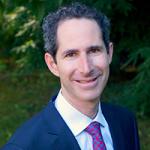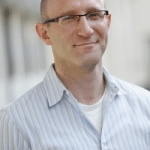There are those who will address the complex questions of gun ownership in the wake of the massacre in Orlando. There are those that will address the challenging nature of political radicalization in response to Orlando. Yet, in the face of so much loss of life — tragically, horrifically and devastatingly — those of us called to religious and faith leadership must rise to the tremendous challenge of taking responsibility for the teachings of our faith. It is not enough to be apologetic about the challenging aspects of our faiths. It is not enough to relegate it to some form of future eschatological action. Rather, we must address directly the root theologies that foster hatred, intolerance, and, yes, sometimes, mass murder. Let me be clear from the outset that I am not advocating revisionism or radical reconstruction of our faiths, but rather, an honest acknowledgment of the ways in which we teach and preach can impact the multitude of ears listening and interpreting.
This should not come as a surprise to anyone who has ever offered a sermon or taught a class. You prepared for hours for your message you wished to deliver. You thought through the language carefully and chose words that would powerfully, meaningfully and simply convey your idea. Yet, there were people after your sermon or class who completely misunderstood you. You said one thing and they thought you said the opposite. How much more so when it comes to matters of life and death and the very God given dignity of your fellow person.
Seddique Mir Mateen, the father of the Orlando shooter, when interviewed and asked to offer a response to the massacre his son committed, stated: “God will punish those involved in homosexuality… [it’s] not an issue that humans should deal with.” This is a classic response to the theological challenge of homosexuality for the modern religious traditionalist, whether the traditionalist is Jewish, Muslim or Christian. In other words, God declared homosexuality wrong but I am experiencing a dissonance between what is conveyed in my sacred writings and what I see everyday in society. If it wrong but there are numerous friends, family and colleagues who are LGBTQ and who are upright, moral good people, how can that be reconciled? God will deal with it. This line of thinking may satisfy one person and allow them to exist in contemporary society, but what does that impart to the young person raised with it? If God will “punish” these people, why wait for God?
Furthermore, the same problem exists when torturous debates are held on the limits of how welcoming a congregation or faith community can be to members of the LGBTQ community. Can they join as a family unit or as two individuals? Can their children enroll in religious school? Can we wish them a congratulations in the weekly announcements for a life-cycle? Can we offer them public condolences on the passing of a family member? Those engaging in that debate may very well feel themselves inclusive and open but from the vantage point of young people listening in on those conversations, what is being conveyed? These people are different, dangerously so, and we must balance our welcoming with a protection of our moral values. We don’t engage in public debates about how welcoming we will be of people with mobility challenges or nearsightedness, but we do so publicly and openly about people with different sexual orientations.
So what is there to do? What can be done for the person and for the faith community that is traditional and does hold a more literal understanding of the Divine origin of their sacred texts? The solutions offered by the more liberal streams in a faith, while attractive and appealing, are not entirely resonant with the ethos of a more traditional framework. How can we transition teachings away from what Seddique Mir Mateen shared to something that does not inherently mark other people as worthy of punishment, dangerously other and subversive while at the same time upholding the sacred writings of our faith as important, worthy of study and reflection?
First and foremost, we must acknowledge that God prefers we do not lie. God prefers we do not lie in our dealings with other people and in our dealings with our faith. This is radical in its implications but so fundamentally true. Instead of engaging in theological acrobatics in addressing a topic such as homosexuality, let us just be open in our frustration and in our angst. We do not know what to do. We value people finding love, intimacy and companionship but at the same time we are confronted with texts that call out this form of intimacy as forbidden. We do not know why that is, we do not pretend to understand the purpose of it, but we maintain enough epistemological humility to know that which we do not know. I believe there is precedent for this as well. Within the Jewish tradition, a classic example of a matter which has been relegated to items we learn about theoretically but do not apply practically is the wayward and rebellious son (Deuteronomy 21:18-21). The Talmud (Sanhedrin 71a) states that there never was a child that fit the parameters of this law and, even more so, there never would be! What is the purpose of this law then? To simply study it. Here the Talmudic sages were challenged with a situation they could not comprehend the righteousness of and what did they do? They wrote it out of practical existence.
Even if we choose to not go so far as the Talmudic rabbis did with the case of the wayward and rebellious son, the notion still remains, we have the power, if we choose to use it, to stop theologizing on the topic of homosexuality. We can welcome people as people without worrying about who they love and how they love them. This does present other issues for each traditional faith community as it grapples with the ramifications of such audacious welcoming within other areas of borders and parameters. However, I would much rather we start with the assumption all are welcome, and we wrestle from that place, rather than begin by pronouncing certain people as worthy of punishment, dangerous or subversive.
The result of a continued path of condemning LGBTQ people while professing a version of openness, like the message of Saddique, is to continue to jeopardize the lives of innocent people. It is to continue to estrange people and make them feel alone and vulnerable. It fosters an environment where young people who grow up in faith environments that, on one hand, declared homosexuality punishable, but on the other hand, something we should do nothing about, open to take up violence to do something about it. The preachers who preached the “sin” of homosexuals, the parents who acted in revulsion to the sight of a gay couple, and the faith community that grappled with just how welcoming to be to these “morally dangerous” people hold a share of responsibility for their deaths.
If we refuse to continue to lie to God we will admit that we do not know how to theologically understand the verses that speak against homosexual behavior and that we refuse to treat people as anything other than beings created in the Divine image and worthy of infinite respect and dignity. Once we are honest with God and with ourselves, we will intentionally move the conversations around homosexuality to the same place that the wayward and rebellious son lives. Pedagogically we do not shun, stone and murder our children when they act out and neither should we do that to anyone else. That is what honesty demands of us.
The blood of all those people murdered this past weekend cries out to us and demands nothing short of audacious honesty and theological humility.














